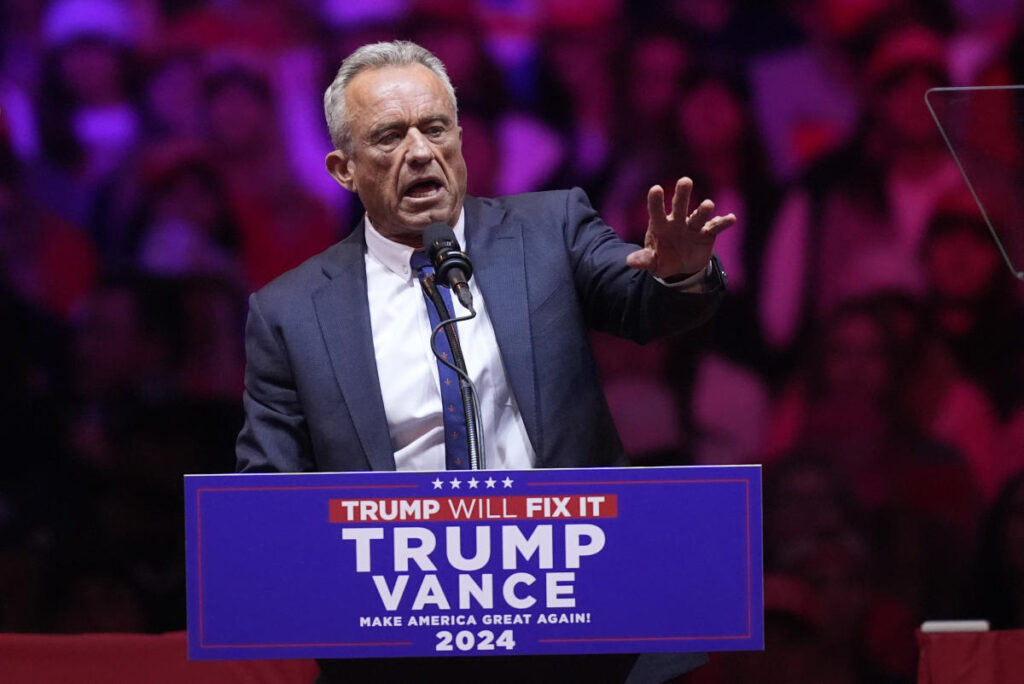On October 24, 2023, the Supreme Court declined to grant an emergency appeal from Robert F. Kennedy Jr. to remove his name from the presidential ballot in Wisconsin and Michigan. Kennedy, who had initially sought the presidency as an independent candidate, requested his removal after endorsing Republican Donald Trump. He contended that remaining on the ballot would infringe upon his First Amendment rights by suggesting that he remained a candidate for president. However, state officials in Michigan and Wisconsin argued that with early voting already in progress—over 1.5 million absentee ballots returned in Michigan and around 858,000 in Wisconsin—it was logistically impossible to remove his name at this stage.
The Supreme Court’s decision did not come with a traditional explanation, as is customary with such emergency appeals, but Justice Neil Gorsuch did express dissent regarding the Michigan case. His dissent referenced lower court opinions that indicated that the timing of Kennedy’s request to withdraw from the ballot wasn’t altogether unreasonable and warranted reconsideration. Despite this dissent, the majority of justices sided with maintaining the status quo, allowing Kennedy’s name to remain in these crucial swing states.
Kennedy’s appeal to withdraw from the ballot puts a spotlight on the implications of independent and third-party candidates in a tightly contested presidential race. With the electoral landscape leaning on a few battleground states, the presence of Kennedy’s name could potentially siphon votes from either major party, although the Supreme Court had previously turned down a similar request from him in New York, where his chances of affecting the outcome appeared negligible. The stakes are particularly high in states like Michigan and Wisconsin, where every vote counts significantly in the race between Donald Trump and Democrat Kamala Harris.
Kennedy’s efforts to disengage from the electoral race began after receiving backing from the Natural Law Party, which aimed for him to retain his position on the ballot, recognizing the importance of independent candidates in driving voter turnout and influencing party candidate dynamics. Despite his initial appeal to leave the race, the courts ultimately asserted that he could not withdraw from the Natural Law Party’s nomination since he had initially committed to that candidacy.
The issue at hand reflects broader questions about electoral fairness and the treatment of independent candidates versus those from major political parties. In Wisconsin, for instance, courts did not accept Kennedy’s claims that the major parties enjoyed more flexibility in changing nominees. They ruled that once candidates miss the deadline to adjust their nomination status, they must remain on the ballot—barring conditions such as death. This treatment raises key questions on whether independent candidates are afforded equitable opportunities and rights in the political process.
In summary, the Supreme Court’s refusal to accommodate Kennedy’s request illustrates the complications surrounding independent and third-party campaigns in U.S. presidential elections. As early voting continues and ballots are already circulating, the decision signifies the importance of timing and legal structures in electoral procedures, limiting the maneuverability that such candidates often hope to exercise. While Kennedy’s presence on the ballot may not substantially change the outcome in major states, it encapsulates the tension and complexities inherent in a politically polarized environment where every vote and candidate matters.

